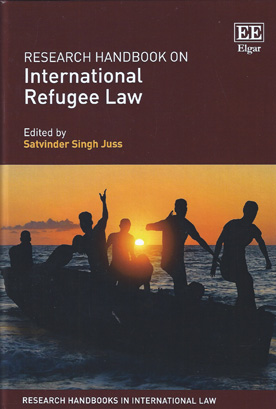
In recent years the UNCHR has expressed increasing concern at how war, violence and persecution have resulted in an age of unprecedented mass displacement.
The global financial crisis, the rise of populist leaders, and the growth of anti-EU parties, raises the need to interrogate the ‘refugee’, ‘migrant’, ‘citizen’, ‘stateless’, ‘legal’, and ‘illegal’ as concepts. This Research Handbook maintains that refugees need to be seen as core indicators of the failure of national, international, economic, and political governance, and provides critical analyses of the legal ordering of refugees, and gives a glimpse at what the future of refugee law could – and should – look like.
Bringing together experts in the field, the innovative and groundbreaking chapters provide a critical perspective on the legal landscape for refugees at a time when the politics and legitimacy of transnational regulatory governance are in question as never before. In an age of growing ethnic nationalism and anti-immigrant rhetoric, the contributing authors examine key issues surrounding refugees and migration, and build a new outlook on social justice, as the post-war international order ends.
With its informative analysis and moving accounts, this Research Handbook will be a critical tool for students of law, especially those with an interest in human rights and migration. Its insights will also be valuable for policy practitioners and policymakers.